Abstract
Rats responded on a multiple fixed-interval fixed-interval schedule of reinforcement. Each complete cycle of the multiple schedule was separated from the next by a relatively long period of timeout from all schedule contingencies. A response at the end of the second component of each cycle was always reinforced with an invariant reinforcement magnitude, while reinforcement magnitude and reinforcement omission were systematically varied in the first component. Response rate in the first component was a monotonic function of reinforcement magnitude in that component. These changes in response rate in the first component did not affect response rate in the second component. When reinforcement was omitted on 50% of occasions in the first component, following reinforcement there was a reduction in response rate in the second component that was monotonically related to reinforcement magnitude. Following reinforcement omission there was an increase in response rate in the second component that was unrelated to reinforcement magnitude. When reinforcement was omitted on 100% of occasions in the first component, behavioral contrast was observed.
Full text
PDF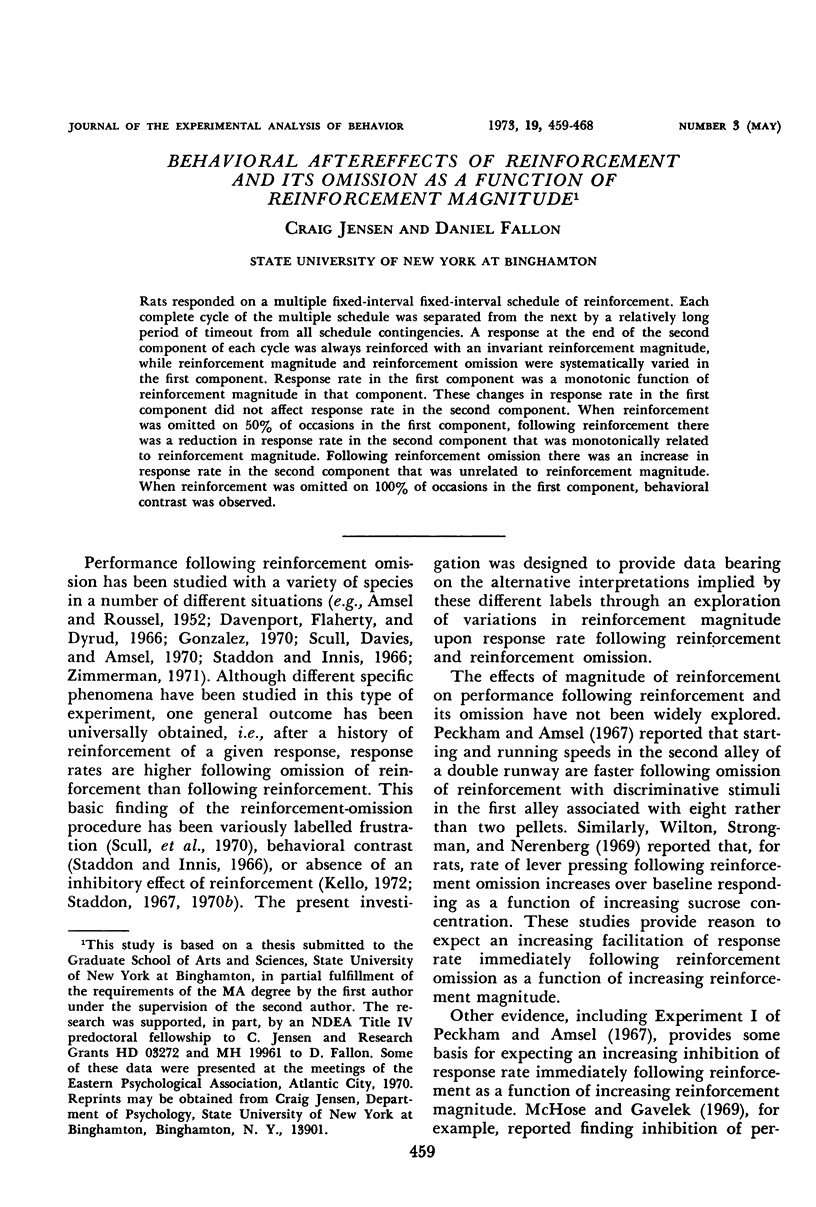
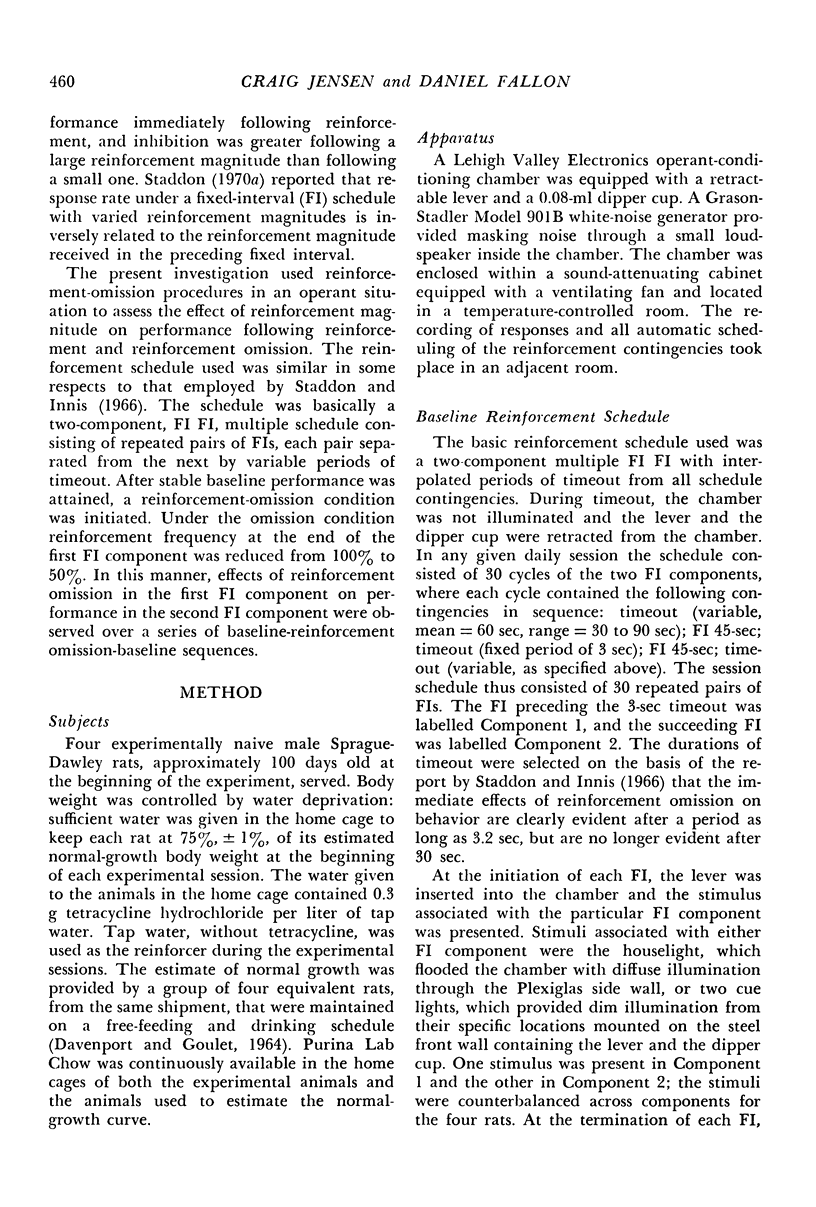
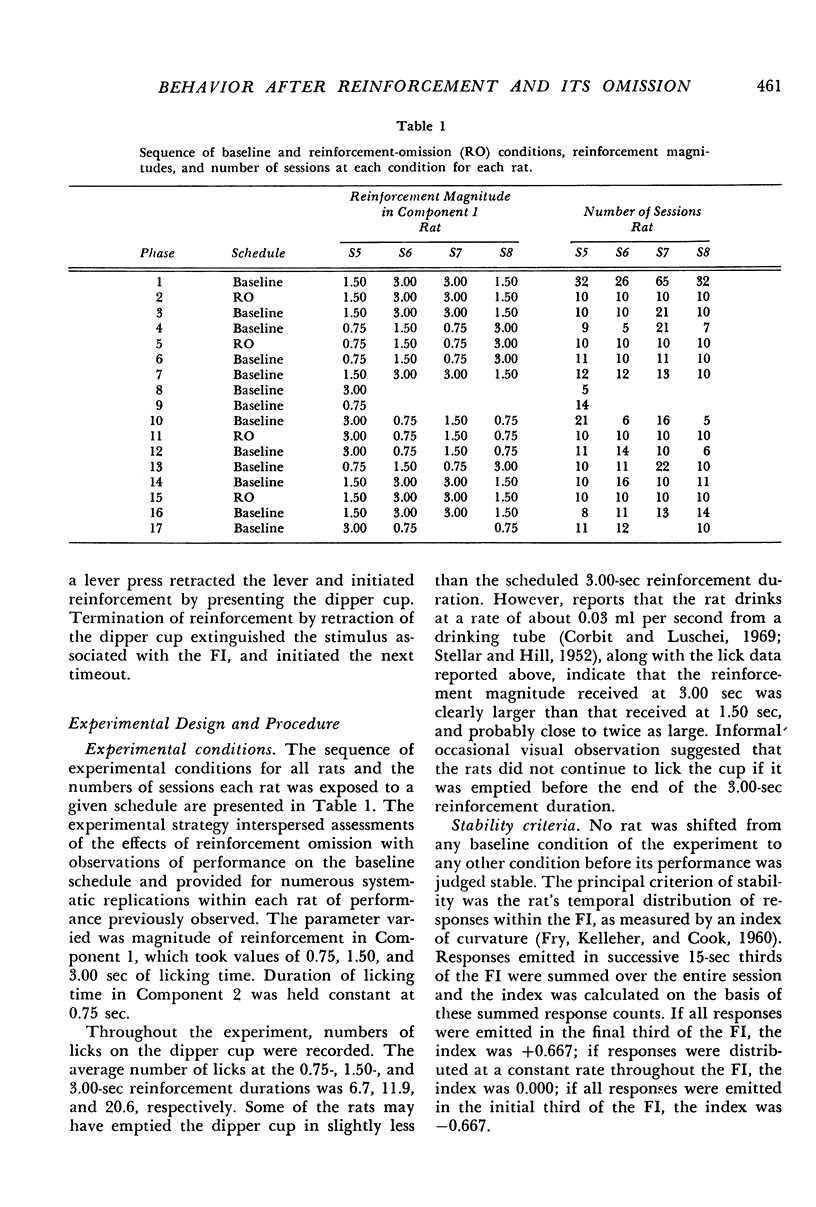
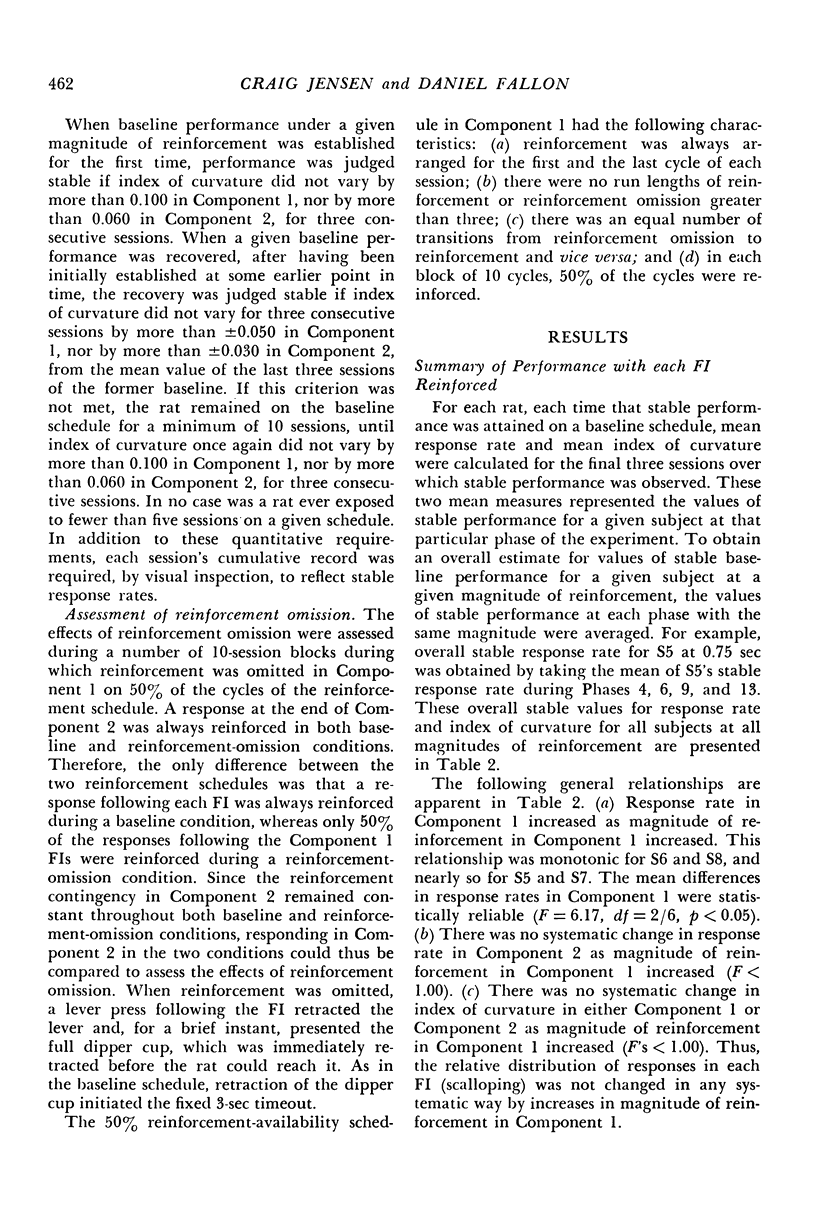
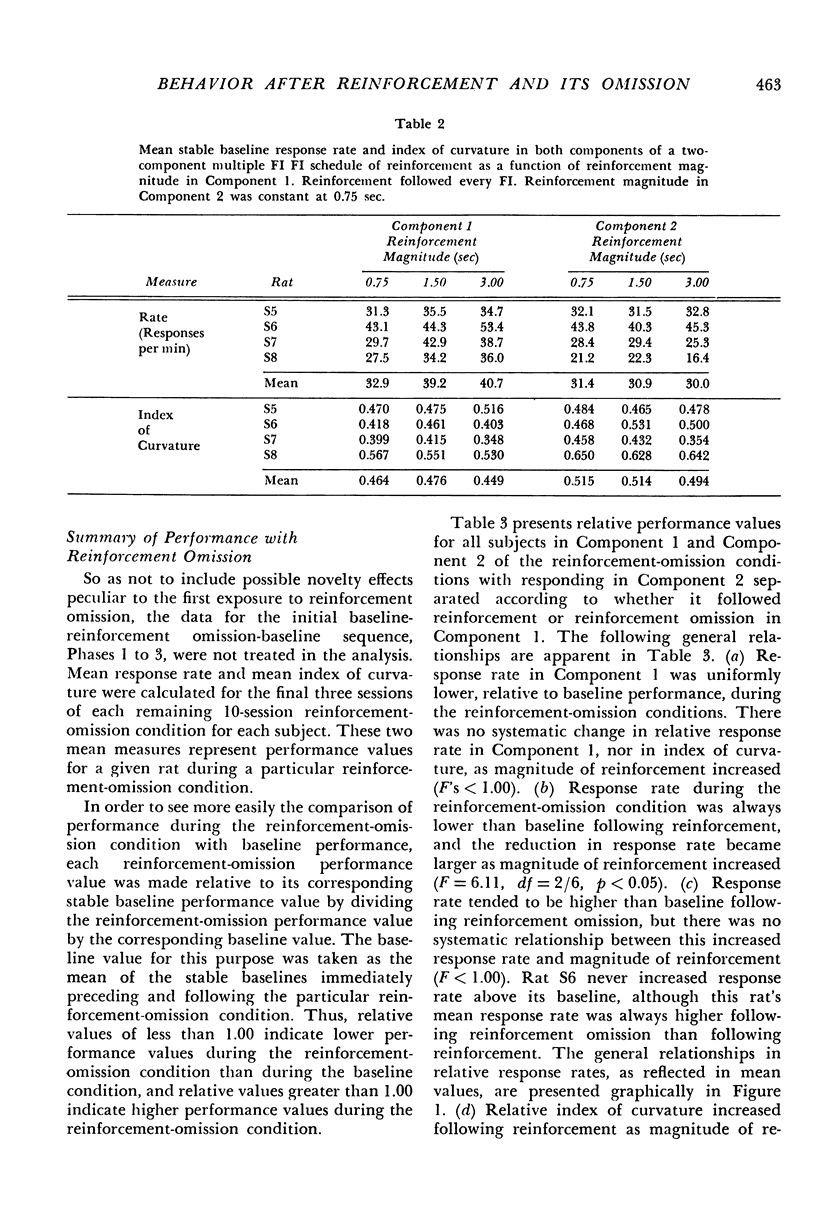
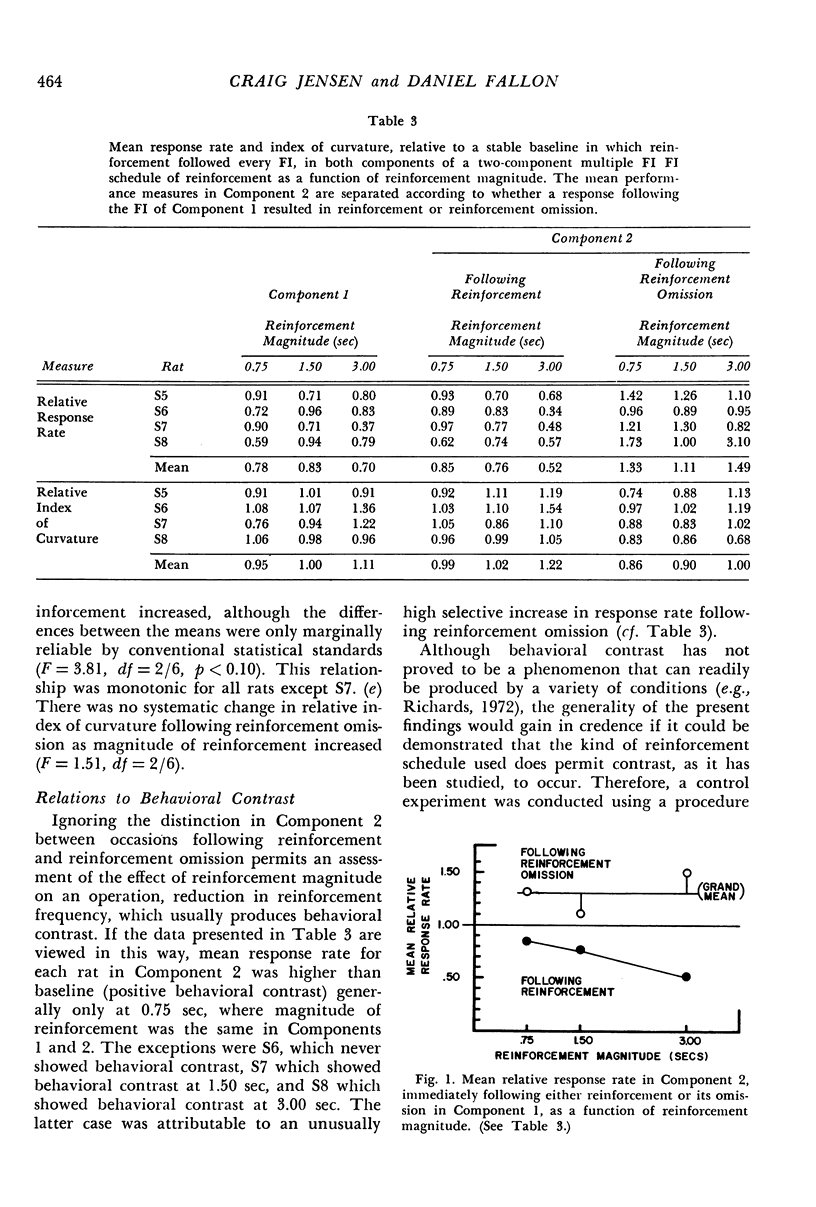
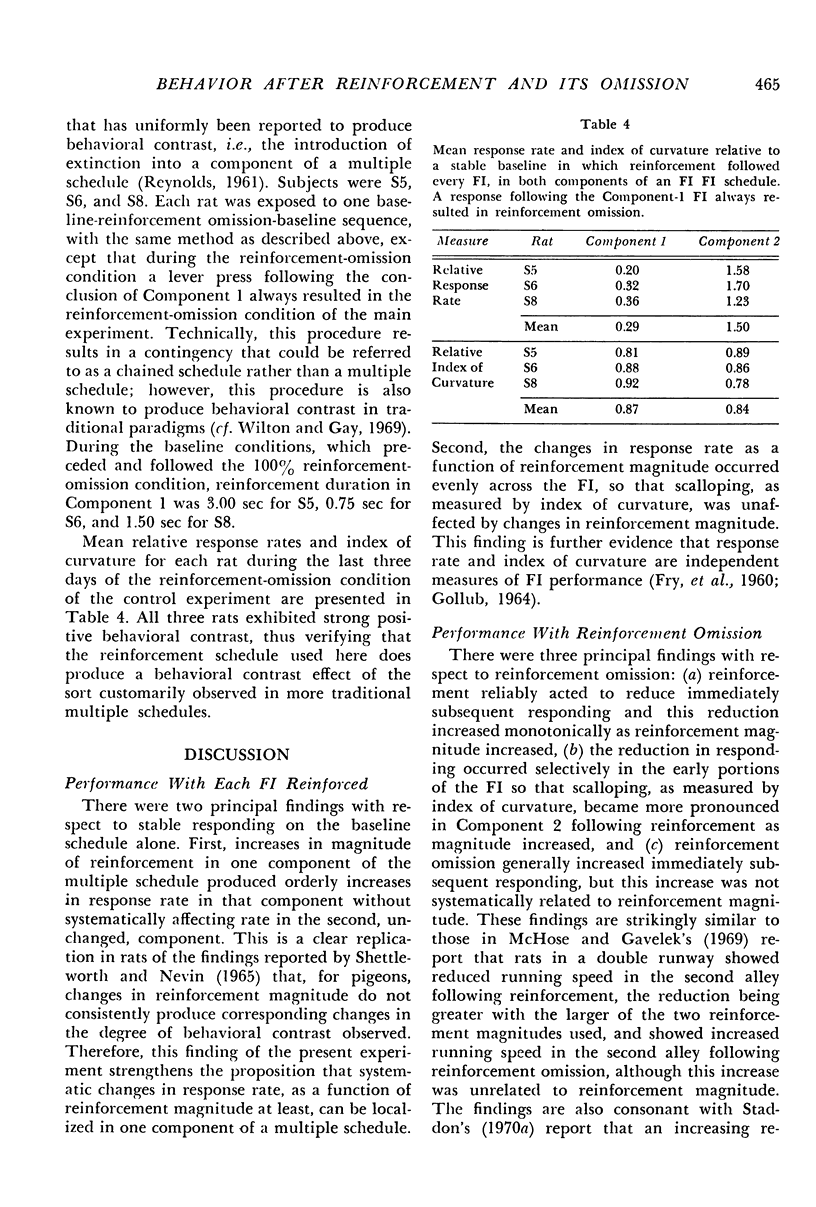
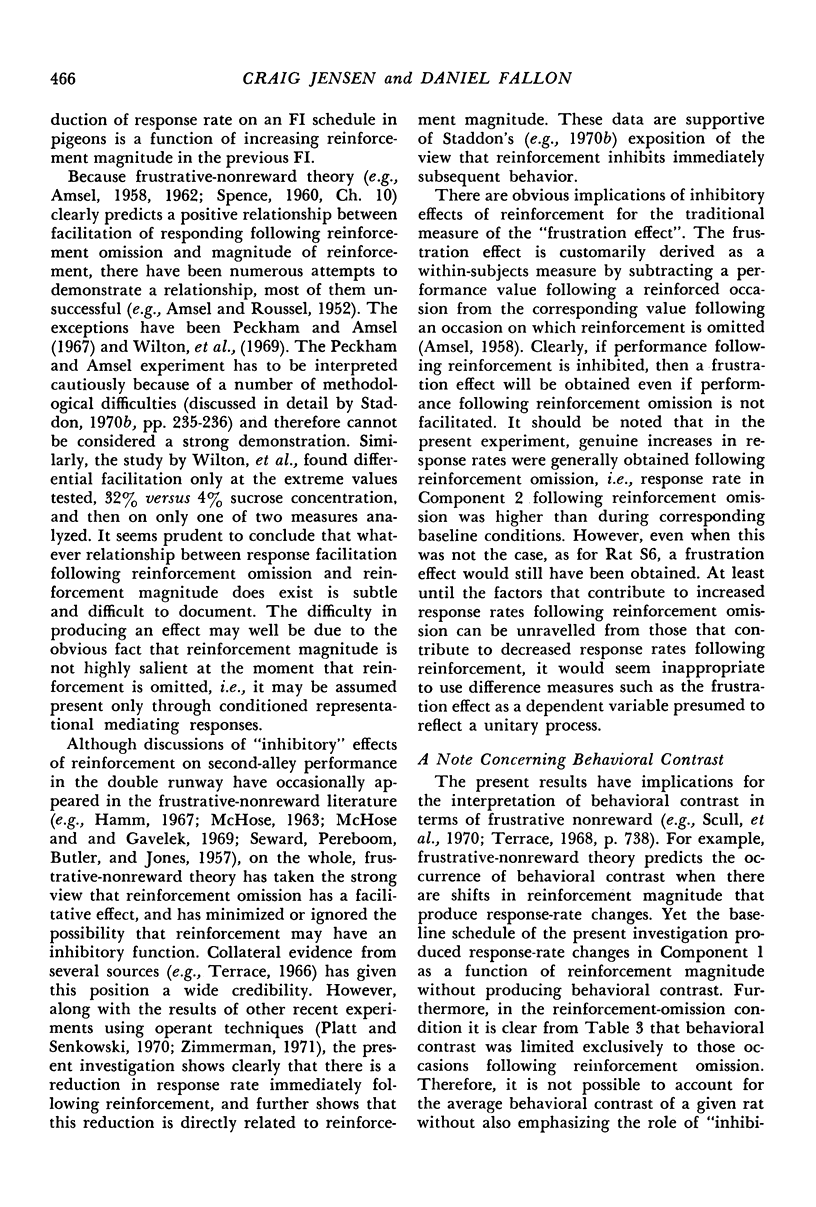
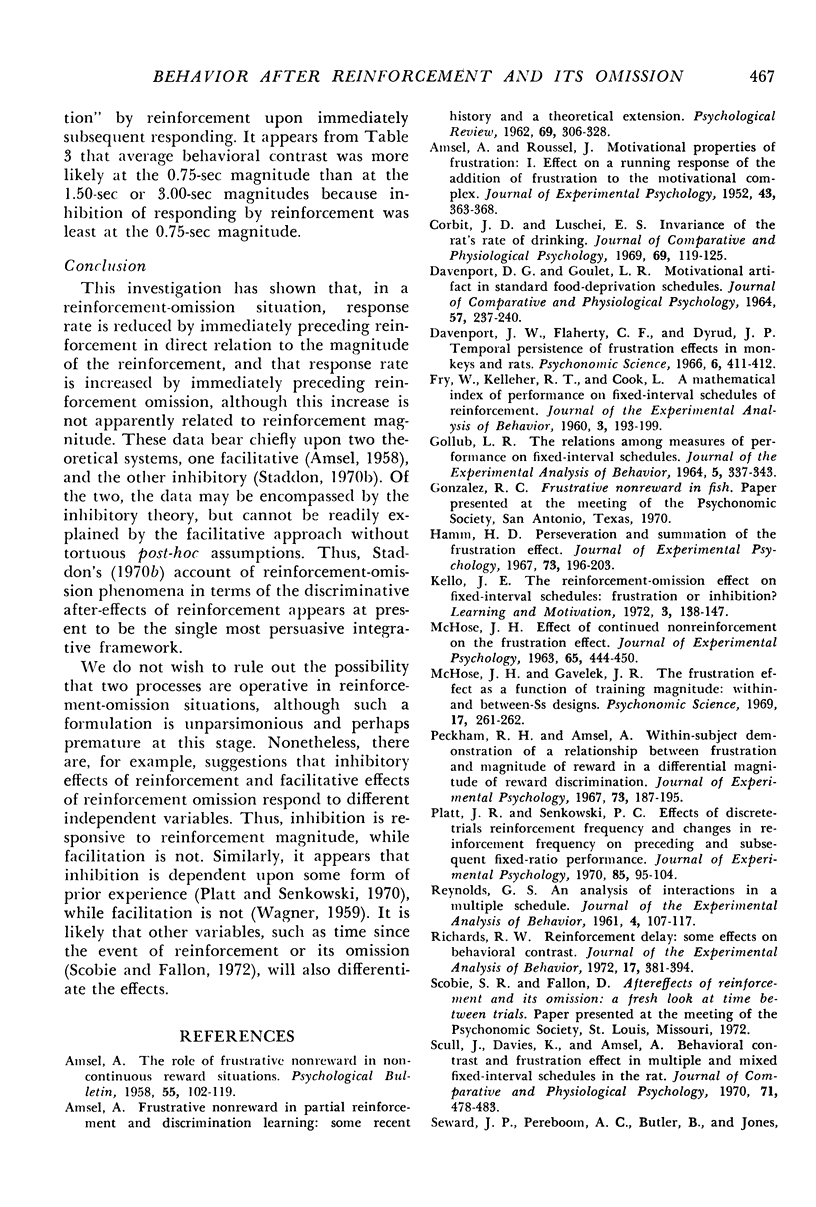
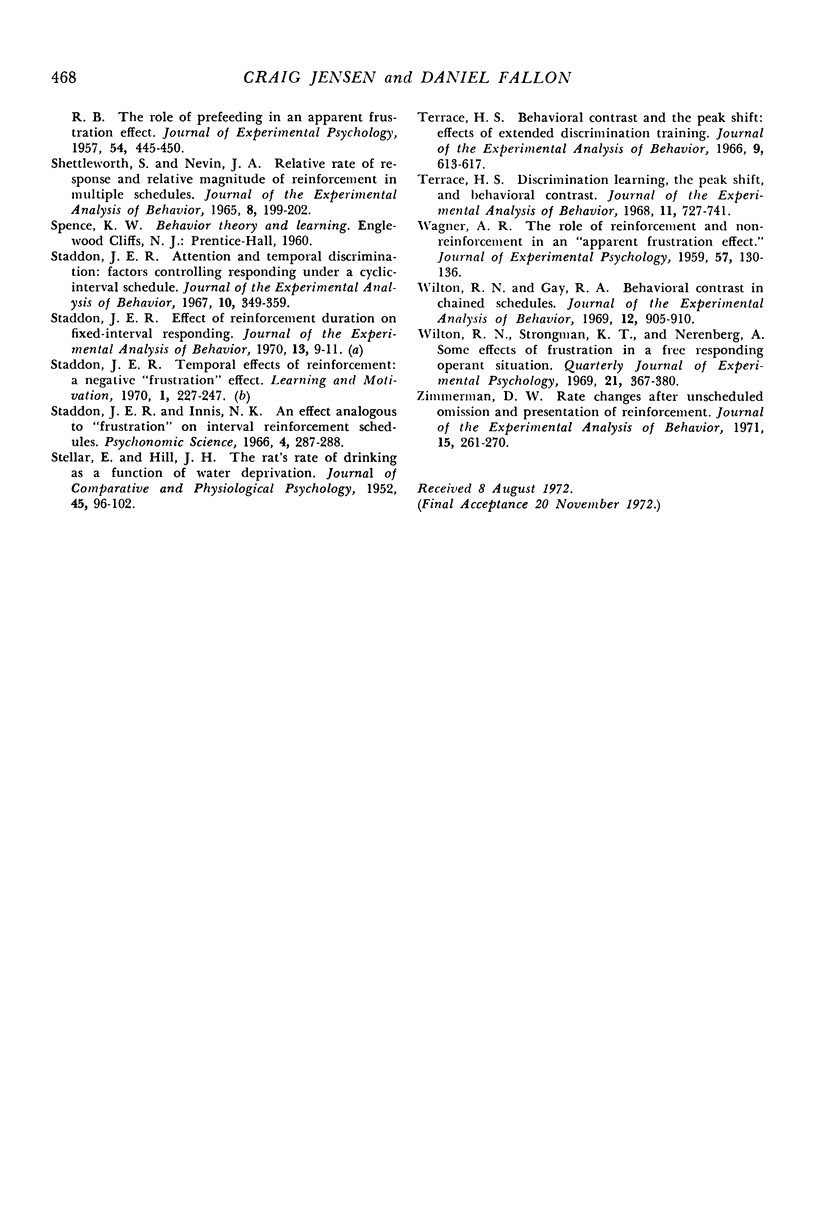
Selected References
These references are in PubMed. This may not be the complete list of references from this article.
- AMSEL A. Frustrative nonreward in partial reinforcement and discrimination learning: some recent history and a theoretical extension. Psychol Rev. 1962 Jul;69:306–328. doi: 10.1037/h0046200. [DOI] [PubMed] [Google Scholar]
- AMSEL A., ROUSSEL J. Motivational properties of frustration. I. Effect on a running response of the addition of frustration to the motivational complex. J Exp Psychol. 1952 May;43(5):363–366. doi: 10.1037/h0059393. [DOI] [PubMed] [Google Scholar]
- Corbit J. D., Luschei E. S. Invariance of the rat's rate of drinking. J Comp Physiol Psychol. 1969 Sep;69(1):119–125. doi: 10.1037/h0027943. [DOI] [PubMed] [Google Scholar]
- DAVENPORT D. G., GOULET L. R. MOTIVATIONAL ARTIFACT IN STANDARD FOOD-DEPRIVATION SCHEDULES. J Comp Physiol Psychol. 1964 Apr;57:237–240. doi: 10.1037/h0041672. [DOI] [PubMed] [Google Scholar]
- FRY W., KELLEHER R. T., COOK L. A mathematical index of performance on fixed-interval schedules of reinforcement. J Exp Anal Behav. 1960 Jul;3:193–199. doi: 10.1901/jeab.1960.3-193. [DOI] [PMC free article] [PubMed] [Google Scholar]
- GOLLUB L. R. THE RELATIONS AMONG MEASURES OF PERFORMANCE ON FIXED-INTERVAL SCHEDULES. J Exp Anal Behav. 1964 Sep;7:337–343. doi: 10.1901/jeab.1964.7-337. [DOI] [PMC free article] [PubMed] [Google Scholar]
- Platt J. R., Senkowski P. C. Effects of discrete-trials reinforcement frequency and changes in reinforcement frequency on preceding and subsequent fixed-ratio performance. J Exp Psychol. 1970 Jul;85(1):95–104. doi: 10.1037/h0029567. [DOI] [PubMed] [Google Scholar]
- Reynolds G. S. An analysis of interactions in a multiple schedule. J Exp Anal Behav. 1961 Apr;4(2):107–117. doi: 10.1901/jeab.1961.4-107. [DOI] [PMC free article] [PubMed] [Google Scholar]
- Richards R. W. Reinforcement delay: some effects on behavioral contrast. J Exp Anal Behav. 1972 May;17(3):381–394. doi: 10.1901/jeab.1972.17-381. [DOI] [PMC free article] [PubMed] [Google Scholar]
- SHETTLEWORTH S., NEVIN J. A. RELATIVE RATE OF RESPONSE AND RELATIVE MAGNITUDE OF REINFORCEMENT IN MULTIPLE SCHEDULES. J Exp Anal Behav. 1965 Jul;8:199–202. doi: 10.1901/jeab.1965.8-199. [DOI] [PMC free article] [PubMed] [Google Scholar]
- STELLAR E., HILL J. H. The rats rate of drinking as a function of water deprivation. J Comp Physiol Psychol. 1952 Feb;45(1):96–102. doi: 10.1037/h0062150. [DOI] [PubMed] [Google Scholar]
- Scull J., Davies K., Amsel A. Behavioral contrast and frustration effect in multiple and mixed fixed-interval schedules in ther rat. J Comp Physiol Psychol. 1970 Jun;71(3):478–483. doi: 10.1037/h0029160. [DOI] [PubMed] [Google Scholar]
- Staddon J. E. Attention and temporal discrimination: factors controlling responding under a cyclic-interval schedule. J Exp Anal Behav. 1967 Jul;10(4):349–359. doi: 10.1901/jeab.1967.10-349. [DOI] [PMC free article] [PubMed] [Google Scholar]
- Staddon J. E. Effect of reinforcement duration on fixed-interval responding. J Exp Anal Behav. 1970 Jan;13(1):9–11. doi: 10.1901/jeab.1970.13-9. [DOI] [PMC free article] [PubMed] [Google Scholar]
- Terrace H. S. Behavioral contrast and the peak shift: effects of extended discrimination training. J Exp Anal Behav. 1966 Nov;9(6):613–617. doi: 10.1901/jeab.1966.9-613. [DOI] [PMC free article] [PubMed] [Google Scholar]
- Terrace H. S. Discrimination learning, the peak shift, and behavioral contrast. J Exp Anal Behav. 1968 Nov;11(6):727–741. doi: 10.1901/jeab.1968.11-727. [DOI] [PMC free article] [PubMed] [Google Scholar]
- WAGNER A. R. The role of reinforcement and nonreinforcement in an apparent frustration effect. J Exp Psychol. 1959 Feb;57(2):130–136. doi: 10.1037/h0047041. [DOI] [PubMed] [Google Scholar]
- Wilton R. N., Gay R. A. Behavioral contrast in chained schedules. J Exp Anal Behav. 1969 Nov;12(6):905–910. doi: 10.1901/jeab.1969.12-905. [DOI] [PMC free article] [PubMed] [Google Scholar]
- Wilton R. N., Strongman K. T., Nerenberg A. Some effects of frustration in a free responding operant situation. Q J Exp Psychol. 1969 Nov;21(4):367–380. doi: 10.1080/14640746908400232. [DOI] [PubMed] [Google Scholar]
- Zimmerman D. W. Rate changes after unscheduled omission and presentation of reinforcement. J Exp Anal Behav. 1971 May;15(3):261–270. doi: 10.1901/jeab.1971.15-261. [DOI] [PMC free article] [PubMed] [Google Scholar]


